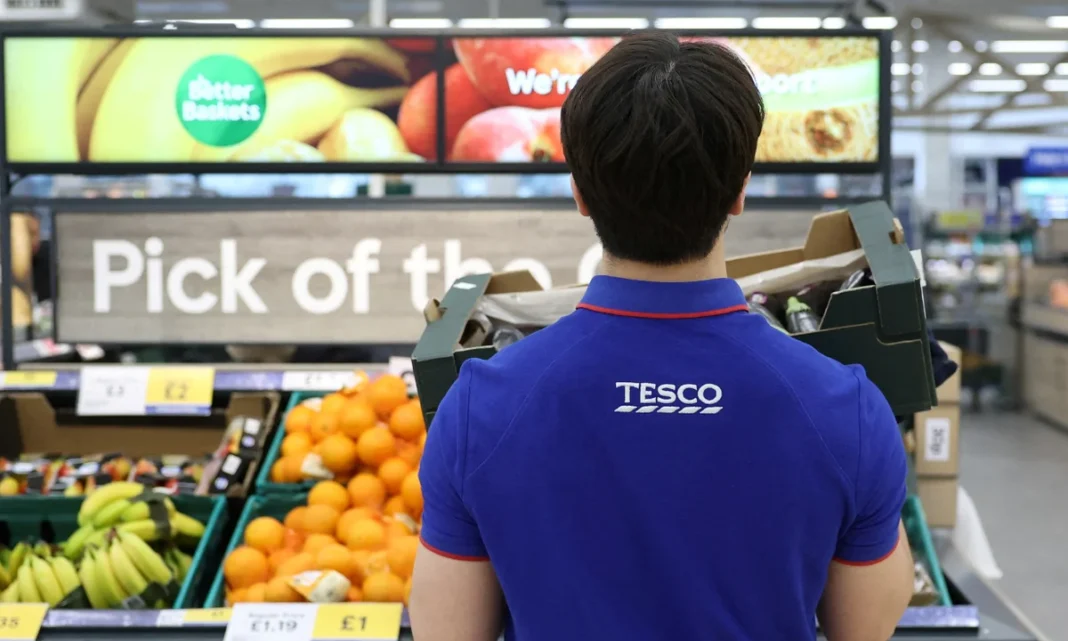Tesco has announced plans to slash an additional £500 million in costs as part of its ongoing efforts to mitigate the financial impact of increased taxes and fierce competition in the supermarket sector. The UK’s largest grocery retailer stated that the cost-cutting measures are necessary to offset the rising operating expenses, including a £235 million hike in its national insurance contributions (NICs) following recent changes in the tax code.
The retailer’s latest move comes as it reported a decline in annual profits and lowered its profit forecast for the year, citing the escalating price war with rival supermarkets. Tesco’s shares saw a sharp drop after the announcement, despite the broader stock market seeing gains in response to political changes in the United States.
Tesco had previously warned that the increase in employer NICs, part of changes outlined in Chancellor Rachel Reeves’s autumn budget, would lead to higher operating costs, potential job cuts, and increased prices for consumers. The British Retail Consortium estimates that the NIC increase—from 13.8% to 15%, combined with the lowering of the earnings threshold for payments—will cost UK retailers a total of £2.3 billion.
When asked whether the latest cost-cutting measures would put jobs at risk, Tesco’s CEO Ken Murphy responded that the company had ended the financial year with more employees than it had at the start, using savings to fuel business growth. He acknowledged that while job cuts couldn’t be ruled out, the company had historically been able to grow the business and provide new opportunities despite challenges.
Tesco had already implemented £510 million in cost cuts in the previous year. However, it now forecasts lower profits for the year due to the price war with competitors. The company predicts that its adjusted operating profit will range between £2.7 billion and £3 billion, down from £3.1 billion in the last financial year.
In its latest earnings report, Tesco revealed a 3.2% drop in pre-tax profits to £2.2 billion for the year ending in February. Nevertheless, the supermarket posted an increase in sales, which rose by 3.5% to £63.6 billion, and increased its market share in the UK to 28.3%, its highest level since 2016.
The ongoing price war among UK supermarkets has significantly affected stock prices, with major retailers, including Tesco’s competitors Sainsbury’s and Marks & Spencer, also experiencing declines in stock value. Asda, in particular, has been aggressive in its pricing strategy, with its chairman Allan Leighton announcing the largest price cuts in 25 years in an attempt to make the supermarket more competitive.
Despite the pressure from rivals, Murphy reassured investors that Tesco was not expecting a significant impact from the international tariffs imposed by the Trump administration on foreign imports. He emphasized that Tesco’s UK-focused supply chain, which relies heavily on domestic suppliers, would shield the company from most potential disruptions related to global shipping and tariffs.
Tesco’s commitment to minimizing the effects of external factors like tariffs and the competitive market landscape reflects its strategy to maintain stability and profitability while continuing to serve UK shoppers with affordable prices.
As the retail landscape evolves, Tesco’s cost-cutting strategy and focus on growth remain central to its efforts to navigate the ongoing economic challenges in the grocery sector.
For more UK business news updates, follow London Pulse News.


